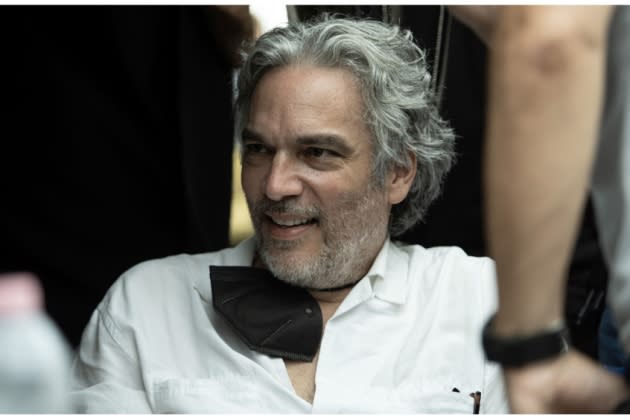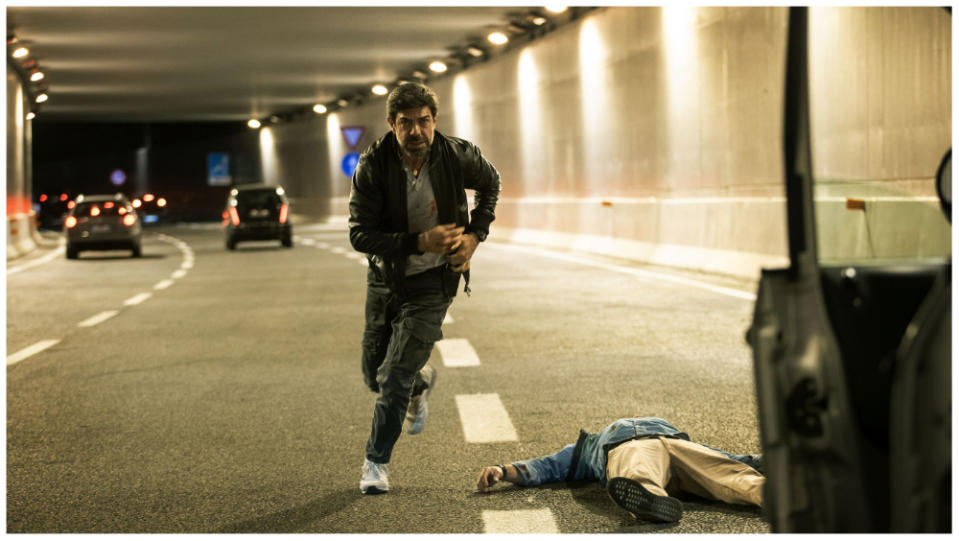Andrea Di Stefano on the Unique Career Trajectory That’s Led Him to Berlin With Gritty Thriller ‘The Last Night of Amore’
- Oops!Something went wrong.Please try again later.
- Oops!Something went wrong.Please try again later.
- Oops!Something went wrong.Please try again later.

Italian actor-turned-director Andrea Di Stefano, whose gritty police drama “The Last Night of Amore” is launching from the Berlin Film Festival’s Berlinale Special Gala section, reps an Italian anomaly.
“Amore,” which refers to a police lieutenant named Franco Amore, oddly marks Di Stefano debut directing an Italian-language film after helming well-received U.S. indie thrillers “Escobar: Paradise Lost,” with Benicio del Toro, and “The Informer.”
More from Variety
Sumptuosly shot in 35mm film and set in present-day Milan, “Last Night of Amore” harks back to Italian genre films of the 70s and 80s but has a fresh contemporary feel. The plot sees the good lieutenant, played by Italian A-lister Pierfrancesco Favino (“The Traitor,” “Nostalgia”) being called on the night before retirement to investigate a crime scene where his best friend and long-time partner Dino has been killed during a diamond heist. Complications ensue, things get very frantic, and we learn how his love for his wife Viviana, played by Linda Caridi (“The Ties”) will help Amore survive the longest and most challenging night of his existence.
Di Stefano spoke to Variety about the journey that’s led him from New York’s Actors Studio to wanting to realistically depict present-day Milan’s criminal underworld on the big screen. Excerpts from the conversation.
You made your acting debut playing a hotheaded young prince in Marco Bellocchio’s “The Prince of Homburg,” which went to Cannes in 1997. Did you always want to direct?
I studied acting in New York before appearing in “Prince of Homburg.” I did plays with the Actors Studio company and they were very formative experiences for me. I met some very talented film people including Arthur Penn, who produced one of these plays. That’s when I gained my storytelling tools. I learned how to build characters by analyzing plays. It stuck with me. So when I started reading scripts as an actor, I realized I had the know-how to fix other people’s screenplays and eventually I started writing some myself. The first film I wrote was a very personal one that I wasn’t able to get made. Then, driven by rage, I wrote the film about Escobar in about three weeks and I was able to find the financing quite quickly for that one.
What was the starting point for “Last Night of Amore”?
It all started with my desire to find a moment in a policeman’s life that could represent an emotional climax. I spent time doing research with lots of Italian cops, and I had this notion of the frustrations of these people whose ambition, in most cases, is to be honest but who get pulled in lots of different directions. I was fascinated by this. Everyone expects policemen to be heroes, especially in Italy. To do very macho things. But they are generally very peaceful people. There are aspects of Italy that I wanted to depict on screen and I knew that through a genre film I could analyze them more in depth than by making a social drama. In terms of story, the starting point was a a news item. Then I became very taken by this lieutenant at the story’s center and I wrote the film around this character.
As an actor, what was it like directing another actor, Pierfrancesco Favino, who is a top Italian talent?
Favino is one of the greatest actors in the world, not just in Italy. I first met him during the “Prince of Homburg” shoot. Twenty-five years later, having had totally different careers, we found ourselves on set with me wearing the director’s hat and we worked very closely. This was a very ambitious and complicated film to shoot. It involved complicated set ups and action scenes with stunt drivers that required a lot of patience on his part. But there was great synergy. I’ve rarely found myself working with an actor with his type of flexibility both in terms of understanding character and taking notes.
What’s on the horizon?
I have a screenplay ready for a film titled “Karski” that I’m in the process of getting financed. It’s set during the Second World War and it’s about the Polish resistance hero Jan Karski who in October 1942, when he was 23, delivered the well-known Karski Report, that is the first document about the Holocaust, to the League of Nations. But nobody believed him.

Best of Variety
Sign up for Variety’s Newsletter. For the latest news, follow us on Facebook, Twitter, and Instagram.

